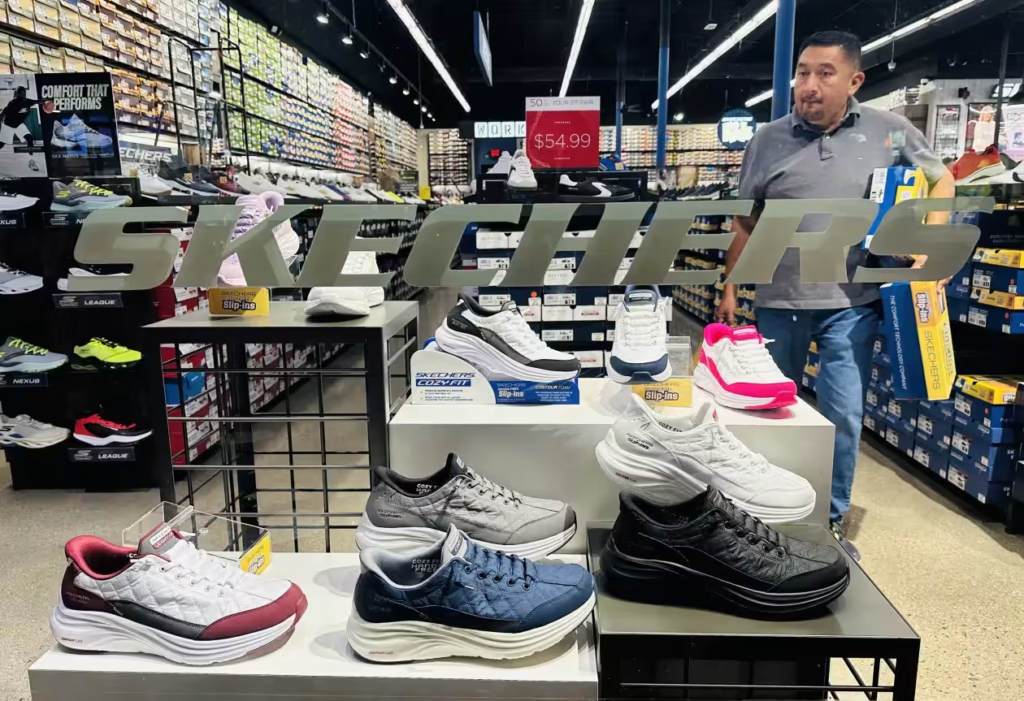As the U.S. trade war upends corporate America’s plans, Skechers USA Inc.’s stock dropped after hours on Thursday after the comfort footwear company revealed first-quarter sales that fell short of Wall Street’s projections and retracted its guidance for this year.
“Due to macroeconomic uncertainty stemming from global trade policies, the company is not providing financial guidance at this time and is withdrawing the annual 2025 guidance provided in our earnings release on Feb. 6, 2025,” Skechers stated in a statement.
Skechers stated in February that it anticipated $9.7 billion to $9.8 billion in revenue over the course of the year, with profits per share of $4.30 to $4.50.
On Thursday, the firm posted first-quarter adjusted earnings per share of $1.17, which was below predictions of $2.43 billion but in line with FactSet analyst estimates, on revenue of $2.41 billion.
After business hours on Thursday, Sketchers’ stock (SKX) fell 6.5%. The stock had lost nearly 14% in the last 12 months as of the closing of trade.
Skechers is susceptible to any prolonged trade disputes with Asian nations like China and Vietnam, just like several other footwear manufacturers. According to its latest annual report, Skechers stated that “substantially all” of its sales in the previous year came from shoes manufactured outside of the United States, with “most” being produced in those two countries.
President Donald Trump’s tariffs, which are meant to incentivize businesses to produce more goods domestically and assist the United States in negotiating more advantageous trade agreements with other countries, have targeted China in particular. The United States has imposed a 145% import tariff on China, but Trump stated on Tuesday that the rate would “come down substantially, but it won’t be zero.”
The company has “significant growth opportunities in China,” according to Skechers’ earnings release on Thursday, and the company intends to continue investing in expansion there.
In that statement, CEO Robert Greenberg added, “we continue to see broad-based global demand.” Additionally, he claimed that new items, such as its slip-on shoes, would help it stand out because tariffs and rising living expenses cause consumers to be pickier about what they buy.





